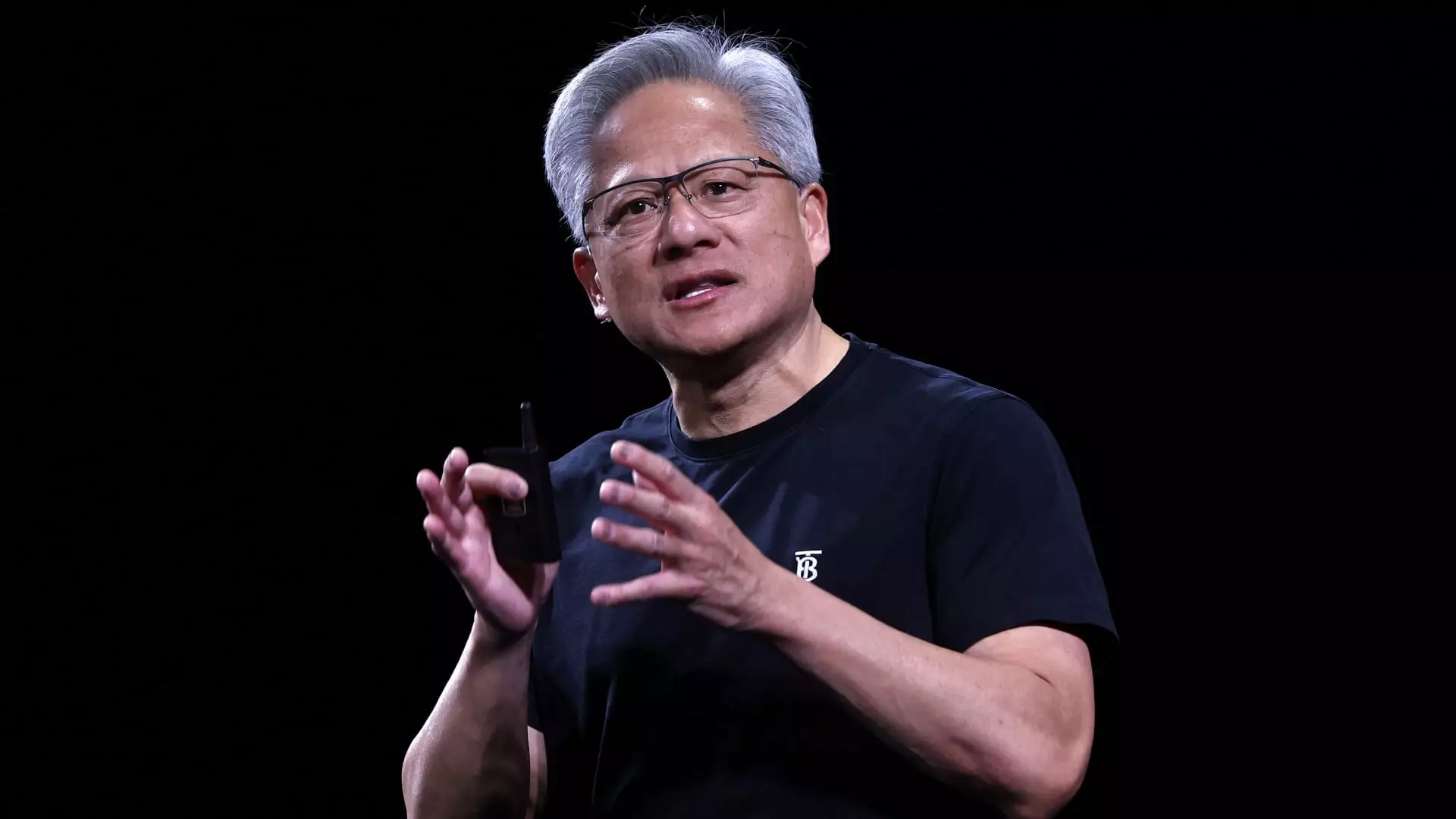In an era where technology serves as both a beacon of hope and a potential vector for deep societal challenges, Jensen Huang, the CEO of Nvidia, has emerged as a striking figure, drawing crowds and attention wherever he goes in Europe. Last week, he capped off his tour through key European cities with a fervent message: Nvidia is not merely a chip company but a transformative force capable of enabling Europe to realize its AI potential. This isn’t just hype; it’s a crucial inflection point for a continent astir with the promise—and peril—of artificial intelligence.
Huang’s charisma was palpable during his appearances at major events such as London Tech Week and the GTC conference in Paris, drawing parallels to rock concerts or historic sports events instead of corporate showcases. Attendees flocked to him for selfies, illustrating not just the popularity of Nvidia but a foundational belief in Huang’s vision. The packed auditoriums and bespoke merchandise indicated a hunger for leadership and a singular narrative about technology that can reshape entire economies.
AI as the New Electricity
One of the more profound aspects of Huang’s message was his assertion that AI should be viewed as a fundamental infrastructure akin to electricity. By framing AI in this way, he taps into the intrinsic human fear of relegation—if regions don’t keep pace with technological advancements, they risk falling into obsolescence. Huang aptly stated, “In order to compete, in order to build a meaningful ecosystem, Europe needs to come together and build capacity that is joint.” This call for collaboration is particularly resonant when considering the fragmented nature of European politics and its historically delicate balance between unity and individuality.
The partnership between Nvidia and French startup Mistral presents a significant moment—a collaborative effort to create an AI cloud that embodies Huang’s vision of ‘sovereign AI.’ The idea is simple yet revolutionary: data centers built within national borders that serve local populations. This model could reframe national control in a globalized technological landscape, empowering countries to tap into AI capabilities without relying on foreign infrastructures.
The Clash of Titans: Navigating the China Narrative
As discussions unfolded, a noteworthy tension emerged: the entangled relationship between American technology firms and their Chinese counterparts. Huang’s experience in discussing U.S. export controls and the implications of the technological cold war brings into sharp focus the complex geopolitical landscape at play. As Nvidia faces limitations on selling advanced chips to China, the specter of Huawei looms large, potentially waiting in the wings to absorb industry gaps left by American firms.
Huang noted that while Huawei may be a generation behind in chip technology, they harness an immense workforce and instill innovation through sheer volume. The significance of this is profound—without participation in the Chinese technology market, American firms risk ceding ground to Chinese companies that can, arguably, weather the storm using different strategies. This could reshape a global tech landscape where alignment with one bloc could marginalize collaboration with the other.
Into the Future: Autonomous Vehicles and Quantum Computing
Looking ahead, Huang expressed enthusiasm for what he termed the “decade of transformation.” He firmly believes that trends like robotics and autonomous vehicles, powered by Nvidia’s technology, will redefine daily living. This proclamation isn’t merely a lofty goal; it is a manifesto for what could substantially enhance human mobility, societal organization, and economic efficiency in the coming years.
Moreover, Huang highlighted quantum computing as a game-changing frontier. With its potential to unravel enigmas that conventional computers cannot even begin to address, the implications for fields like healthcare and materials science are staggering. Harnessing this technology could trigger breakthroughs—not just benefiting corporations or laboratories, but society at large.
A Personal Reflection on the Visionary’s Charge
Through Huang’s charismatic guidance, there’s an undeniable optimism that washes over the European landscape. However, lurking beneath that excitement is a sobering reality; the dependence on AI and technology comes with ethical dilemmas and societal implications that must not be ignored. As regions race to establish AI infrastructures, they must also reflect deeply on issues like privacy, inequality, and control over technology, ensuring that advancements do not exacerbate existing fractures in society.
Balancing progress with ethical consideration is where the true test of leadership lies and, as much as Huang points toward an electrifying future with AI at its core, it is incumbent upon policymakers, companies, and citizens to navigate these waters thoughtfully. The stakes couldn’t be higher; the map drawn today will define the journey toward a technologically adept and equitable future.

Leave a Reply